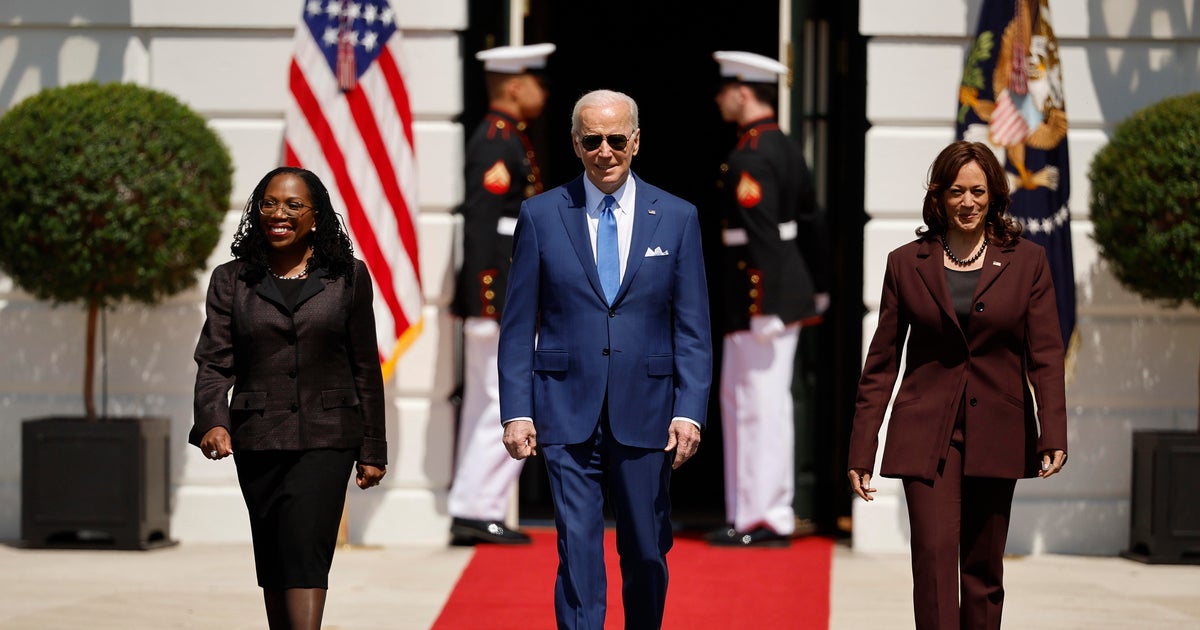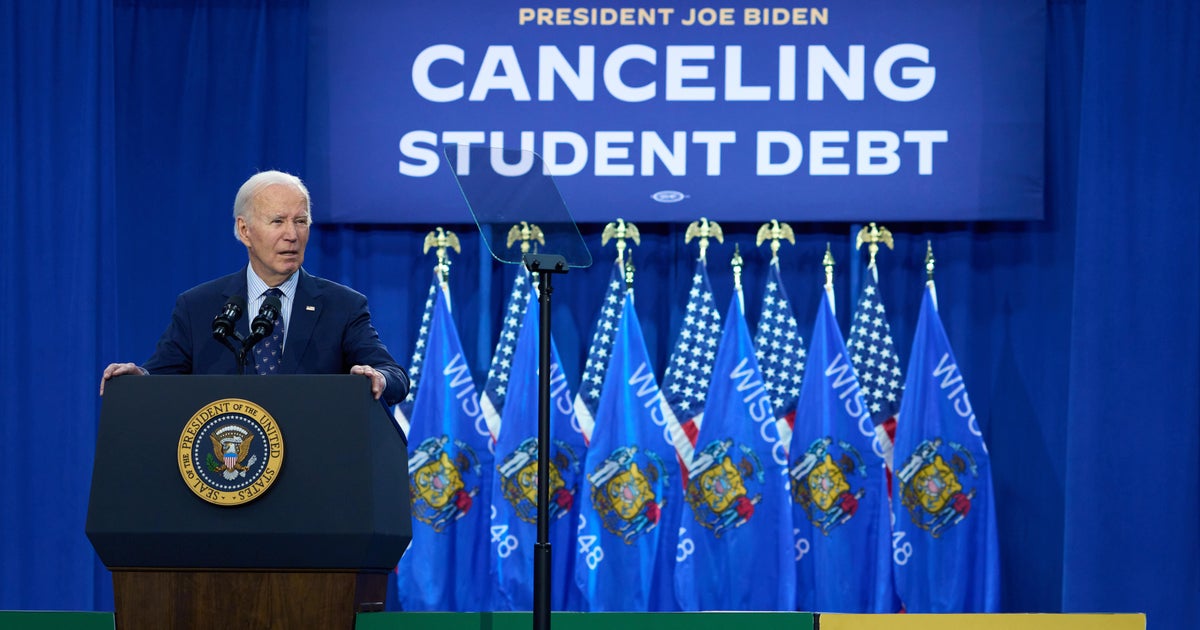Book excerpt: "Washington's End," on the final years of the father of our country
In "Washington's End: The Final Years and Forgotten Struggle" (published by Scribner, a division of ViacomCBS), author Jonathan Horn's biography of George Washington begins when most biographies of America's Revolutionary War hero and first president end: at the conclusion of his second term in office, when he prepares to ride off into the sunset, to his plantation at Mount Vernon. But upon retirement, Washington soon became restless – as Horn describes him, like a lion in a cage.
Read this excerpt from "Washington's End" below, depicting the inauguration of Washington's successor, John Adams, and don't miss Chip Reid's interview with Jonathan Horn on "CBS Sunday Morning" February 23!
Washington knows how to leave people wanting more. For their eyes, he has always staged his entrances and exits with "a strain of Shakespearean ... excellence": the moment in 1775 when he "darted" out of the room rather than ("modesty" forbid!) hear his name nominated for commander of the Continental Army; the "solemn" scene eight years later when he resigned his commission after securing America's independence; the reluctance he manifested before emerging from retirement to chair the Constitutional Convention in 1787 and to accept the newly created office of president in 1789; the prophetic-sounding farewell address he published this past September, weeks before the election so as to deter the electors from giving him the third term he would otherwise have received.
An encore now ensues. As the cheers in the chamber grow louder, Washington walks faster so as to signal how desperate he is to break free of the trappings of power that have detained him for two terms from Mount Vernon, his beloved Virginia estate overlooking the Potomac River. This time, Adams believes, it is more than an act. Washington staying in office a single day more would endanger his health. "He must plunge into agriculture and ride away his reflections," the memories of the controversies and calumnies that he fears have tarnished his reputation.
The country has divided into the parties Washington hoped never to see but can no longer transcend. Federalists have supported his administration; Republicans have opposed it. Both parties have their bases: the Federalists in the North, the Republicans in the South. Both parties have their own presses. Off the Republican ones come stories accusing Washington of betraying the legacy of the American Revolution and of craving a crown. Not being accustomed to criticism makes it harder to bear. The words wound Washington deeper than the public imagines. "His skin is thinner than mine," Adams realizes. Some say Washington refused to stand for a third term, in part, because he knew he could no longer carry every electoral vote as he did in his first two elections.
So it is Adams who has suffered the indignity of defeating the Republican candidate, Thomas Jefferson of Virginia, by only three votes. Finishing second has given Jefferson what the past eight years of personal experience have revealed to Adams as "the most insignificant office that ever the invention of man contrived": the vice presidency. Not far from where Washington now sits waits Jefferson, looking about the same height as his fellow Virginian but powdering his hair only a little and letting the queue hang free over his back. Not since resigning as secretary of state at the end of 1793, after feuding with Washington's other cabinet members over foreign policy, has Jefferson appeared in Philadelphia. He "is as he was," Adams notes, as romantic as ever about the bloodlettings and beheadings known as the French Revolution.
Nothing, it seems, will "awake" Jefferson from his "golden dreams" and show him that the French Revolution has replaced monarchy not with the liberty he hoped but with the mobocracy
Adams dreaded from the start. Four years have passed since Louis XVI, the French king who sent ships and soldiers to support the American Revolution, went to the guillotine and his country, now a republic, went back to war against the United States' old colonial overlord. Britain has fought on even as Europe's other royal powers have fallen to the French forces fanning out across the Continent. With Republicans favoring France and with Federalists favoring Britain, the war has accelerated the forces pulling Americans to opposite sides, even as Washington has said the country will take no sides. He has labored to keep America at peace. Maintaining it has required him to ratify with George III of Britain the so-called Jay Treaty, a controversial accord that Republicans denounce as a betrayal of France. To undermine the deal, they have gone so far as to urge the French to meddle in the recent election on Jefferson's behalf. Franco-American relations have all but collapsed. There are whispers of war. Already French privateers have declared open season on American shipping.
If war comes, the American people will long for Washington. They will want a general at the helm. Instead, they will have Adams. The years chairing committees at the Continental Congress and conducting diplomacy abroad have brought him to this moment. Down the aisle that Washington has walked – and up the dais where he sits – now goes John Adams. The sword he wears across the waist of a light-colored suit cannot change how he sees himself: a "short, thick, fat" man insecure over having never worn a sword in battle. "Adams!" the people cheer, but not as loudly as they cheered for Washington, as if having engaged in the ritual before has dulled their enthusiasm. "I have been so strangely used in this Country, so belied and so undefended," Adams thinks. Republicans think him too much a Federalist. Federalists know him to be too much an independent. Even those who have supported his election do not love him. They "seem to be afraid to approve anybody but Washington." Only thanks to Mrs. Washington does Adams know he had the support of her husband in the election.
The faint feeling lingers. Perhaps Adams should say little more than the oath required for office. The address Washington gave at his second inaugural totaled just 135 words. But silence has never been among Adams's gifts. Even if it leaves him "open to scoffs and sarcasms," Adams must speak his mind. He worries he will not "get through" it all. On he goes praising the Constitution, insisting that he has no desire to turn the Senate into a House of Lords or the presidency into a monarchy, and warning about the danger of political parties and foreign attachments. Toward the end comes the tribute he has prepared to Washington. "In that retirement, which is his voluntary choice, may he long live to enjoy the delicious recollection of his services, the gratitude of mankind, the happy fruits of them to himself and the world, which are daily increasing, and that splendid prospect of the future fortunes of his country, which is opening from year to year." Knowing that people worry how the country will endure without Washington makes it necessary to add this: "His name may be still a rampart, and the knowledge that he lives a bulwark, against all open or secret enemies of his country's peace."
The worries for Washington's health vanish. The old man suddenly looks "as serene and unclouded as the day." Washington needs to say nothing in response, for the expression says everything. "Ay!" Adams imagines his predecessor saying. "I am fairly out and you fairly in! See which of us will be happiest." The chief justice administers the oath. To the people watching, Adams bows. There is "more weeping than there has ever been at the representation of any tragedy." He looks for a "dry eye" in the room but can find "scarcely" one other than Washington's. The number of "ladies" in attendance astonishes Adams. Then the realization strikes: The audience has not come to see Adams's reign begin. The people have come to witness Washington's end.
Excerpted from "Washington's End" by Jonathan Horn (Scribner). Copyright © 2020 by Jonathan Horn. Reprinted with permission of Simon & Schuster, a division of ViacomCBS.
For more info:
- "Washington's End: The Final Years and Forgotten Struggle" by Jonathan Horn (Scribner), in Hardcover, eBook and Audio formats, available via Amazon




